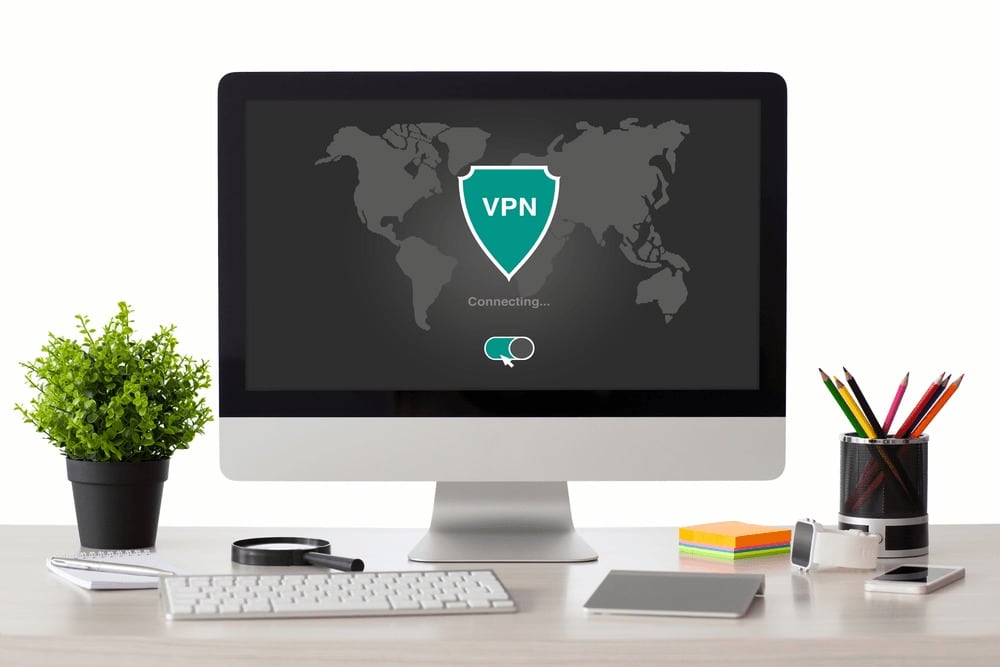Using a virtual private network (VPN) is one of the best ways to protect your privacy and security online. However, not all VPNs are created equal. Residential VPNs that use IP addresses assigned to homes and businesses by internet service providers offer a higher level of anonymity compared to traditional datacenter VPNs.
In this guide, we’ll explain the key differences between residential and datacenter VPNs. We’ll also review the top 14 residential VPN services for 2023 based on factors like pricing, features, reliability, and more.
Why Choose a Residential VPN?
Residential VPNs route your traffic through IP addresses used by regular households and businesses. This makes your online activity look more natural and less suspicious. Some key advantages include:
Avoid blocks and bans: Websites and services are more likely to block IPs from datacenters used by many VPN users. Residential IP addresses typically avoid blocks.
Access region-restricted content: Streaming services like Netflix aggressively block most datacenter VPN IPs. Residential IPs are less likely to be blacklisted.
Hide your identity: Residential IPs don‘t stand out as coming from a VPN server, providing better anonymity.
Better prices: Dedicated residential IPs are more affordable than dedicated datacenter IPs.
Faster speeds: Residential IPs are less likely to be overloaded compared to shared datacenter IPs.
The main downside is that residential VPN services typically have fewer location options compared to large datacenter VPNs. The IP pool is also usually smaller. However, for many users, the anonymity and reliability benefits outweigh the reduced location selection.
The Top 14 Residential VPNs of 2023
Based on factors like reputation, features, value, and more, here are the top 14 residential VPN services recommended for 2023:
1. NordVPN
NordVPN is the top VPN provider overall with over 5,200 servers worldwide. While mainly a datacenter VPN, they also offer residential IPs and dedicated IPs for an extra fee. The network speed is excellent and they have a strict no-logs policy.
Pros
- Wide server selection
- Fast speeds
- Dedicated IP option
- 6 simultaneous connections
Cons
- More expensive than smaller providers
- No free plan
Price: Starts at $3.29/month for 2-year plan
2. TorGuard
TorGuard has a specific residential proxy service using IP addresses from hundreds of ISPs in over 50 countries. It provides different levels of bandwidth. They also have dedicated IPs available.
Pros
- Affordable pricing
- Large residential IP pool
- Advanced customization
Cons
- Clunky apps
- Smaller VPN network
Price: Starts at $7.99/month
3. GeoSurf
GeoSurf offers premium residential VPN services targeted to marketers, researchers, and data scientists who need high quality IPs. They have residential IPs in 190 countries. All plans come with unlimited bandwidth.
Pros
- Worldwide residential IPs
- Unmetered bandwidth
- Low 1st month cost
Cons
- Not many extra features
- More limited locations
Price: Starts at $49/month
4. Tuxler
Tuxler is a unique free P2P residential VPN service. Users contribute bandwidth and IP addresses. In exchange you can access residential IPs from the pool for free without limits. Paid plans with faster speeds are also available.
Pros
- Completely free option
- Unlimited P2P traffic
- Wide protocol support
Cons
- Need to install app
- Slower speeds
- Limited locations
Price: Free or $3.99/month
5. Oxylabs
Oxylabs offers over 40 million residential IPs worldwide through their proxy service. It‘s easy to manage IPs through their dashboard. Integrations are available along with 24/7 support.
Pros
- Huge residential IP pool
- Easy to manage IPs
- Generous free proxy trial
Cons
- Expensive for individuals
- Targeted at developers
Price: Starts at $300/month
6. Luminati
Luminati residential proxies are available through both desktop apps as well as browser extensions. Their network includes over 40 million IPs in every country. All residential IP plans have unlimited bandwidth.
Pros
- Residential proxies for any device
- Unlimited bandwidth
- Extremely large IP pool
Cons
- Very expensive
- Targeted at big business
Price: Starts at $500/month
7. Smartproxy
Smartproxy offers backconnect rotating residential proxies supporting HTTP, HTTPS, and SOCKS protocols. IPs automatically rotate to avoid detection. Month-to-month plans are available without long contracts.
Pros
- Automatic rotating IPs
- No long-term contracts
- Generous 3-day free trial
Cons
- Limited to 20 locations
- Smaller IP pool
Price: Starts at $75/month
8. GeoSurf
GeoSurf has residential VPN servers in 190+ countries providing advanced regional access. All plans include unlimited bandwidth. Support is fast and effective. They also offer dedicated static IPs.
Pros
- Worldwide residential VPN
- Unmetered bandwidth
- 7-day money-back guarantee
Cons
- No free plan available
- Higher minimum price
Price: Starts at $99/month
9. RA4W VPN
RA4W VPN is a small provider focused solely on delivering residential VPN services. They have servers in 10 countries, provide good speeds, and have custom apps for Windows and Android.
Pros
- Specializes in residential VPN
- Custom apps available
- Windows and Android support
Cons
- Very limited locations
- Small company
Price: Starts at $7/month
10. PrivadoVPN
PrivadoVPN is a zero-logs VPN service with apps for all major platforms. They offer residential proxy support through a sister company Proxyrack. Good download speeds throughout the small network.
Pros
- Zero-logs policy
- Fast speeds
- Residential proxies available
Cons
- Small server network
- Fewer features
Price: Starts at $9.99/month
11. Proxyrack
Proxyrack has datacenter as well as residential backconnect proxies starting under $30/month. IPs automatically rotate and all traffic is encrypted. Integrations are available for developers along with APIs.
Pros
- Affordable residential proxies
- Unlimited bandwidth
- Generous free trial
Cons
- Mostly targets developers
- Limited locations
Price: Starts at $27/month
12. ProxyNova
ProxyNova offers backconnect residential IPs from 190+ countries. All plans include full Layer 7 support, unlimited bandwidth, high anonymity, and no contracts. Integrations are available.
Pros
- Worldwide residential IPs
- No bandwidth limits
- No long-term contracts
Cons
- Interface could be improved
- Setup can be tricky
Price: Starts at $90/month
13. StormProxies
StormProxies provides millions of residential IPs located around the world. They support all major protocols including HTTP, SOCKS5, and SOCKS4. Integrations are available for developers.
Pros
- Huge residential IP pool
- Generous free trial
- Zero-logs policy
Cons
- Targeted at developers
- Higher minimum price
Price: Starts at $200/month
14. Soax
Soax offers millions of residential IPs from 190+ countries. The network includes both static and rotating backconnect residential proxies fully managed through their dashboard.
Pros
- Worldwide IP locations
- Easy to use interface
- Static & backconnect residential
Cons
- Expensive for individuals
- No custom apps
Price: Starts at $199/month
Residential VPNs vs. Datacenter VPNs
To summarize the key differences:
Residential VPNs use IPs provided by ISPs to homes/businesses. They offer higher anonymity but have fewer location options, smaller server networks, and lower speeds.
Datacenter VPNs use IPs hosted in datacenters controlled by the VPN provider. They offer more locations, bigger networks, and faster speeds but are easier to block.
Pricing for residential VPNs is higher due to the limited IP supply. But dedicated residential IPs are cheaper than dedicated datacenter IPs.
For most individuals who prioritize privacy and avoiding blocks, a reliable residential VPN will provide the best experience and value overall.
FAQs About Residential VPNs
Are residential VPNs legal?
Yes, residential VPNs themselves are legal to use in most countries. However, what you do with them could be illegal. Always abide by local laws when using a VPN. Never use them to do anything malicious or illegal.
How do residential IPs avoid blocks?
Since residential IPs come from ISPs and not datacenters, they typically look like real user traffic. This makes them harder to categorize and block. No IP is 100% block proof though.
Can I get a free residential VPN?
A few free options like Tuxler (reviewed above) allow access to residential IPs by contributing bandwidth. However, most quality residential VPNs require a paid subscription starting around $5-10/month.
Are residential proxies the same as VPNs?
Proxies and VPNs both hide your IP address, but work differently. Residential proxies only route browser or app traffic through the IP while VPNs route all traffic from your device. So proxies are more limited.
How fast are residential VPNs?
Speeds are highly dependent on the provider. In general, residential VPNs offer moderate speeds since they have smaller server networks. Expect 2-25Mbps for basic use, but higher speeds are available from top services.
The Bottom Line
For anyone who values privacy and avoiding blocks when torrenting, streaming, or general web access, a residential VPN provides significant advantages over crowded datacenter VPNs. Services like NordVPN, TorGuard, and GeoSurf lead the market with large residential IP pools, extensive features, and excellent performance.
Most top providers offer free trials or money-back guarantees so you can test out their residential IP service first. To maintain anonymity, opt for a no-logs provider based offshore in a privacy-friendly jurisdiction. Compare pricing tiers since plans with more locations, bandwidth, and connections will cost more.
With their unique advantages and increasing reliability, residential VPNs deserve consideration alongside traditional VPNs when choosing a service this year.






